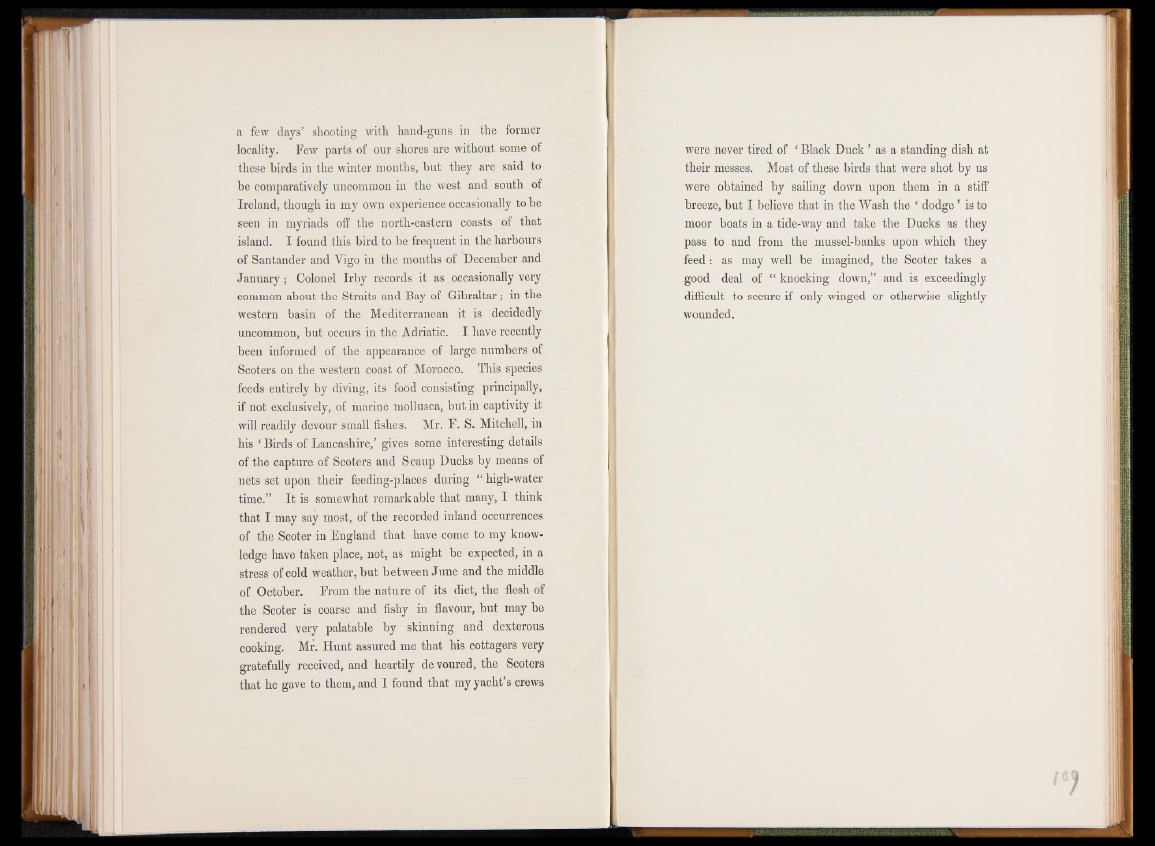
a few days’ shooting with hand-guns in the former
locality. Few parts of our shores are without some of
these birds in the winter months, but they are said to
be comparatively uncommon in the west and south of
Ireland, though in my own experience occasionally to be
seen in myriads off the north-eastern coasts of that
island. I found this bird to be frequent in the harbours
of Santander and Vigo in the months of December and
January; Colonel Irby records it as occasionally very
common about the Straits and Bay of Gibraltar; in the
western basin of the Mediterranean it is decidedly
uncommon, but occurs in the Adriatic. I have recently
been informed of the appearance of large numbers of
Scoters on the western coast of Morocco. This species
feeds entirely by diviug, its food consisting principally,
if not exclusively, of marine mollusca, but in captivity it
will readily devour small fishes. Mr. F. S. Mitchell, in
his ‘ Birds of Lancashire,’ gives some interesting details
of the capture of Scoters and Scaup Ducks by means of
nets set upon their feeding-places during “ high-water
time.” It is somewhat remarkable that many, I think
that I may say most, of the recorded inland occurrences
of the Scoter in England that have come to my knowledge
have taken place, not, as might be expected, in a
stress of cold weather, but between June and the middle
of October. From the nature of its diet, the flesh of
the Scoter is coarse and fishy in flavour, but may be
rendered very palatable by skinning and dexterous
cooking. Mr. Hunt assured me that his cottagers very
gratefully received, and heartily devoured, the Scoters
that he gave to them, and I found that my yacht’s crews
were never tired of £ Black Duck ’ as a standing dish at
their messes. Most of these birds that were shot by us
were obtained by sailing down upon them in a stiff
breeze, but I believe that in the Wash the ' dodge ’ is to
moor boats in a tide-way and take the Ducks as they
pass to and from the mussel-banks upon which they
feed : as may well be imagined, the Scoter takes a
good deal of “ knocking down,” and is exceedingly
difficult to secure if only winged or otherwise slightly
wounded.